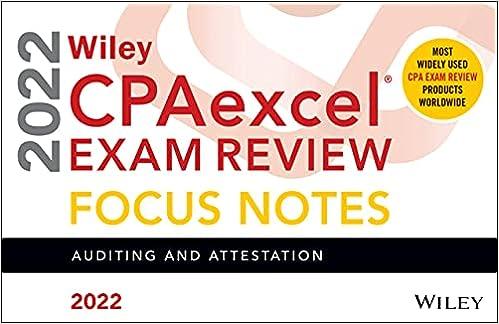Answered step by step
Verified Expert Solution
Question
1 Approved Answer
1. What are the relevant facts? 2. What are the ethical issues? 3. What are the possible alternatives? 4. What are the practical constraints? 5.

1. What are the relevant facts? 2. What are the ethical issues? 3. What are the possible alternatives? 4. What are the practical constraints? 5. What actions should Penny take?
Penny is the first Controller ever hired at a medium-sized farm machinery company. The firm has reacquired tractors and other parts and equipment from farmers who filed for bankruptcy or were seriously behind in their monthly payments during a recent two-year downturn in the economy. In addition, the firm has acquired some miscellaneous inventory from competitors experiencing the same misfortune. One of Penny's initial goals is to determine how accurately the inventory on the books reflects its fair market value. As she walks with Ron, the inventory control clerk, through all the equipment and inventory pallets, she notices that numerous parts and machines look rusty and dusty. Ron informs her that while only about a third of these items are repossessions, most are from overruns or the recession; "many have been sitting on these skids for years." As Penny inquires further, it appears that this problem is extensive, and that this inventory moves slowly. When the inventory does sell, it is at a significant discount. Rhonda, the Sales Manager, indicates that these are really tough times to sell this stuff, especially because most of the "slow movers" are large-ticket items. In fact, Rhonda feels sorry for her sales staff since they have been forced by the company president to push these items with only 2 percent more in commission. Finally, Penny approaches Art, the Company President, about this problem and asks what he intends for her to do about the dilemma. Art informs her that he believes that many of these items are salable given appropriate marketing and the right economic conditions Besides, some of his major customers owe him a few favors. Art also indicates that now is not the right time for the company to take a hit from inventory revaluation. During the ensuing months, Penny did not see much movement from these stacks. She again approached Art and asked how he would address this issue when the audit came. Art reiterated his former response regarding product salability and stressed actual sales across all product lines to the auditors. He asked Penny not to point out this problem to the auditors and finally said, "just see if they notice it. And if they start nosing around in it, I hope you'll be able to show them that some of these items are turning over." Penny interpreted Art as saying she should help falsify records if it looked like the auditors were discovering the slow movers. Penny didn't know what she would do next. Penny is the first Controller ever hired at a medium-sized farm machinery company. The firm has reacquired tractors and other parts and equipment from farmers who filed for bankruptcy or were seriously behind in their monthly payments during a recent two-year downturn in the economy. In addition, the firm has acquired some miscellaneous inventory from competitors experiencing the same misfortune. One of Penny's initial goals is to determine how accurately the inventory on the books reflects its fair market value. As she walks with Ron, the inventory control clerk, through all the equipment and inventory pallets, she notices that numerous parts and machines look rusty and dusty. Ron informs her that while only about a third of these items are repossessions, most are from overruns or the recession; "many have been sitting on these skids for years." As Penny inquires further, it appears that this problem is extensive, and that this inventory moves slowly. When the inventory does sell, it is at a significant discount. Rhonda, the Sales Manager, indicates that these are really tough times to sell this stuff, especially because most of the "slow movers" are large-ticket items. In fact, Rhonda feels sorry for her sales staff since they have been forced by the company president to push these items with only 2 percent more in commission. Finally, Penny approaches Art, the Company President, about this problem and asks what he intends for her to do about the dilemma. Art informs her that he believes that many of these items are salable given appropriate marketing and the right economic conditions Besides, some of his major customers owe him a few favors. Art also indicates that now is not the right time for the company to take a hit from inventory revaluation. During the ensuing months, Penny did not see much movement from these stacks. She again approached Art and asked how he would address this issue when the audit came. Art reiterated his former response regarding product salability and stressed actual sales across all product lines to the auditors. He asked Penny not to point out this problem to the auditors and finally said, "just see if they notice it. And if they start nosing around in it, I hope you'll be able to show them that some of these items are turning over." Penny interpreted Art as saying she should help falsify records if it looked like the auditors were discovering the slow movers. Penny didn't know what she would do nextStep by Step Solution
There are 3 Steps involved in it
Step: 1

Get Instant Access to Expert-Tailored Solutions
See step-by-step solutions with expert insights and AI powered tools for academic success
Step: 2

Step: 3

Ace Your Homework with AI
Get the answers you need in no time with our AI-driven, step-by-step assistance
Get Started


